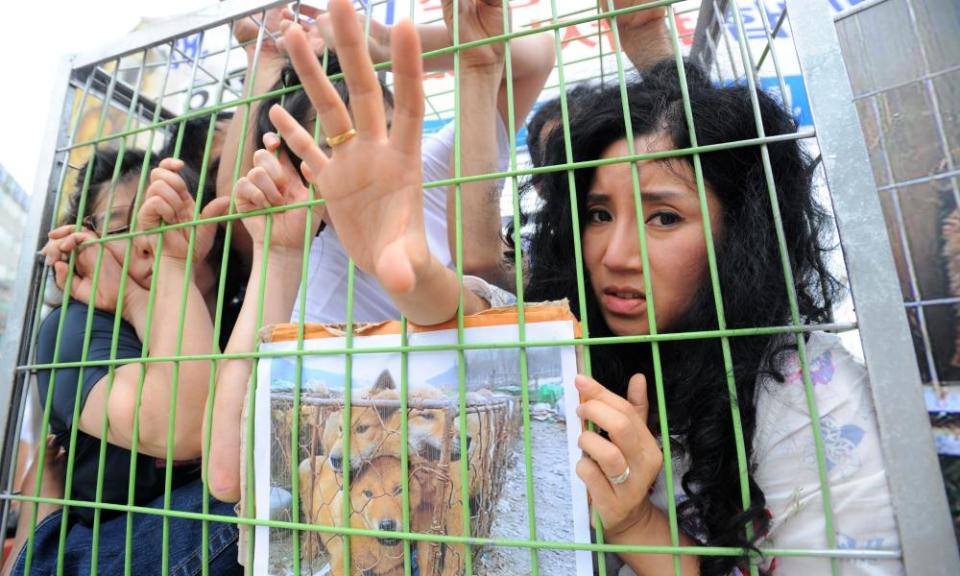South Korea closes biggest dog meat market in run-up to Olympics

The shutters have started coming down at South Korea’s biggest dog meat market as the country seeks to head off international criticism over its practice of killing dogs for human consumption before it hosts the 2018 Winter Olympics.
Moran market in Seongnam sells more than 80,000 dogs, dead or alive, every year and accounts for about a third of South Korea’s dog meat consumption, according to local media.
On Monday, officials and traders began removing butchery facilities and cages in which live animals are kept before they are slaughtered. The decision to close the market came after animal welfare campaigners highlighted the inhumane conditions in which the animals were kept and the methods used to kill them: electrocution, hanging and beating.
The smell and noise had also prompted complaints from nearby residents.
The market’s closure has met with opposition, however. South Korean media reported that a handful of the 22 dog meat sellers who initially agreed to the move last December now oppose it, and are demanding compensation to make up for the loss of business.
“Almost 80% of our customers visit our shops to buy fresh dog meat, so what are they going to do if we cannot provide it for them? Is the government going to pay us?” Shin Seung-cheol, a Moran trader, told the Korea Herald.

Officials in Seongnam, a city near Seoul, said traders would be given financial support to refurbish their premises and open new businesses – part of an effort to remodel the open-air market and end its long association with the dog meat trade.
For decades, dog meat sellers have taken advantage of a legal grey area: livestock hygiene laws do not apply to the killing and sale of dogs, making it difficult for authorities to regulate the industry.
Activists point out, though, that the animal protection law, while not expressly outlawing the slaughter of dogs, does prohibit “brutal” methods and the killing of animals in the open.
According to the Korean Statistics Information Service 892,820 dogs were being kept at more than 100 farms in 2010, reported the Korea Observer. Supporters of the industry claim that eating dog meat can improve male virility and combat fatigue and illness, particularly during the hot summer months.
At Moran market, customers typically select live dogs which are then butchered in plain sight of shoppers.
Although only a small proportion of South Koreans regularly eat dog meat, thousands of restaurants and health food stores continue to sell it, mainly in soups and stews, or as a herb-infused tonic, according to International Aid for Korean Animals.
International criticism of dog meat consumption intensified during the 2002 football World Cup, which South Korea jointly hosted with Japan. Some campaigners have launched online petitions calling for a boycott of next year’s Pyeongchang Olympics unless the country bans the eating of dog meat.

 Yahoo Sport
Yahoo Sport 





































